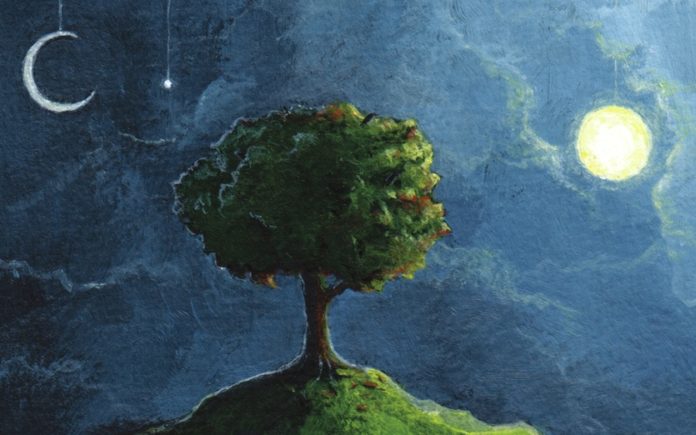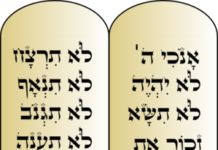Hi there, friends! In our previous lesson, we left our hero as he engaged in conversation with a giant in the desert who was astounded to see a regular sized human being faring so well in such treacherous conditions. As we learned, this giant represents a perfect tzaddik who finds it difficult to understand the “Torah of mistakes”, and how refusing to give up and remaining ever-committed to avodas Hashem despite many failures can enable a Jew to reach great levels of closeness with Hashem.
The viceroy told him (the giant) the whole story, and about how he was searching for the mountain of gold and the palace of pearls.
With laser focus, the viceroy disregards the giant’s astonishment over his personal journey and the spiritual elevation he has experienced not despite, but because of his many failures and his refusal to despair in his ability to regain a passionate and intimate relationship with the Master of the world. Focused solely on his ultimate goal which he feels so very close to finally attaining, he tells the giant what he has been searching for all these years; the princess of youthful wonder and excitement toward life and avodas Hashem.
The giant responded “Certainly, this place doesn’t exist.” He repressed him, telling him that his mind had been led astray by folly, for it was clear that no such place existed.
In addition to the discouraging failures that a Jew experiences along the search for the lost princess of life, he is sure to encounter friends or family members that simply can’t seem to understand what he is searching for.
Reb Shlomo Carlebach z”l taught that there are two kinds of people in the world; “sun-people” and “moon-people”.
Sun-people are always the same. Either they do not struggle and fail, or they have become so hardened over the years that those struggles and failures no longer shake their existence. Their daily lives are not consumed by the endless searching of a stormy soul for the deeper meaning of existence, nor do they ever feel any sort of lack in their avodas Hashem. From their earliest days they have always “played by the books”, doing everything they are supposed to do and easily finding their place in the societal system of yiddishkeit. Like the sun, they are unchanging, always shining the same.
Moon-people, on the other hand, are just the opposite. In touch with the loss of the princess in their lives, these Jews feel compelled to embark on a soul-journey, an epic search for the inner dimension of yiddishkeit and how they can fill the Vacant Space that sits at the essence of their being. Like the moon, these Jews are constantly rising and falling; their light growing bigger and then dimming once more as they ride the daunting hills of their struggle. The greatness of the moon-people is that no matter how far they may fall from their mighty goal, they never, ever give up. A certain holy-stubbornness is built into their essence, forever pushing them onward, validating their inner quest and promising them that with enough resolve, they will find a way to quench their great thirst one day, at long last. This is why the Jewish calendar goes by the moon – the Jewish nation, collectively, are a nation of moon-people. “B’chol dor v’dor omdim aleinu l’chaloseinu”, throughout out glorious history we have experienced every sort of persecution but nothing has managed to stay our stormy spirit and put out our flickering flame. “Ba’anu ad sof kol hadoros v’odenu imach – we have arrived at the end of all generations and we are still with You, Hashem.”
It goes without saying that sun-people have a very difficult time understanding moon- people. From their perspective, life is pretty straightforward – you do what you have to do and that’s basically it. They can’t grasp why some people always feel a lack in their lives and
Here, the viceroy, the ultimate moon-person, encounters a new kind of obstacle: the sun person. As great a gadol as the giant may be, he is out of touch with the viceroy’s stormy soul and his penetrating clarity into how he can successfully fill the lack in his life. The viceroy knows the princess well; he has spoken with her no less than three times throughout a lifetime consumed with his search for her. But to this giant, it is all one big waste of time. To him, it is all make-believe; there is no princess; nothing was lost that needs to be found; it is all the yetzer hara trying to pull the viceroy away from his Gemara etc. Although the viceroy has struggled against obstacles before, none elicit the level of emotion he exhibits here, in response to the giant’s dismissal of his very essence for which he has sacrificed everything.
The viceroy began to cry very much, for he was certain that the place existed.
At this point, the viceroy is at the end. A lifetime spent searching for the lost princess; the key to his essence, the one thing for which he came to this world and his repeated failures to succeed in this precious mission culminates in this moment. We can envision the viceroy dropping to his knees before this spiritual giant that denies his life’s mission, breaking down into tears – not of frustration or despair, but of reaching absolute clarity into the very core of his being; an expression of his overwhelming certainty in the existence of the mountain of gold and the palace of pearls and his iron-will to free the lost princess at any cost. As he weeps, the viceroy gives himself strength that no matter how difficult the obstacles may seem, he must never give up on what he knows to be unequivocally true.
The giant repressed him again, saying “It is certainly folly!”
Seeing the tears of the viceroy, the giant thinks they are tears of regret. Surely, after hearing a gadol with such great authority and expansive Torah knowledge rule that his search is futile, the viceroy has accepted it whole-heartedly and sees his great error. Unfortunately, being a sun-person, the tzaddik lacks the awareness of a deeper kind of crying, the war cry of holy-stubbornness, unrelenting courage, and refusal to give up that bursts like a powerful geyser from the essence of a Jew’s being.
And the viceroy said “It certainly exists.”
When a Jew gets in touch with the one thing he truly needs to do in life, the essence of his personal mission in olam hazeh, nothing can deter him from pursuing it. Although he might accept the giant’s authority on any other matter, nothing he says to dissuade the viceroy from continuing to search for the lost princess can prevent him from continuing to pursue that which he knows he must with every fiber of his being. He has met the lost princess, he has spoken to her. He has given everything for this mission because he knows that this is his personal duty to the king whom he loves so very much. This absolute clarity allows him to brazenly look up at the tremendous frame of the spiritual giant and, with every ounce of strength he can muster in his small and unimpressive form, continue to insist that there is indeed a princess and that, no matter how fantastical it may sound, the place she is being held exists and is surely accessible to him.
See you next time!







